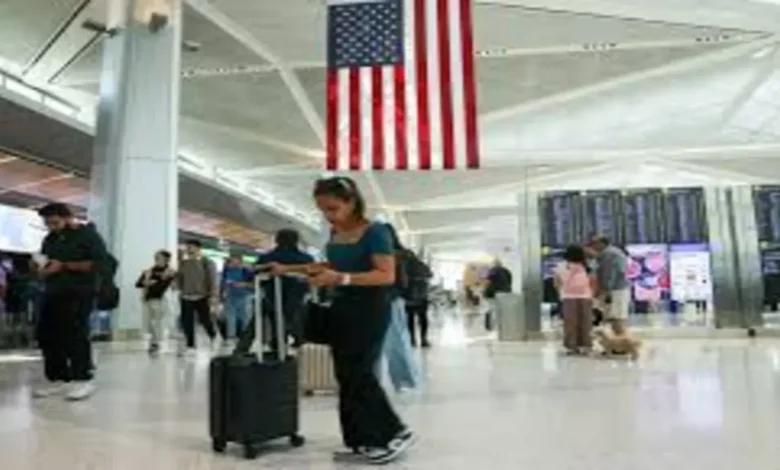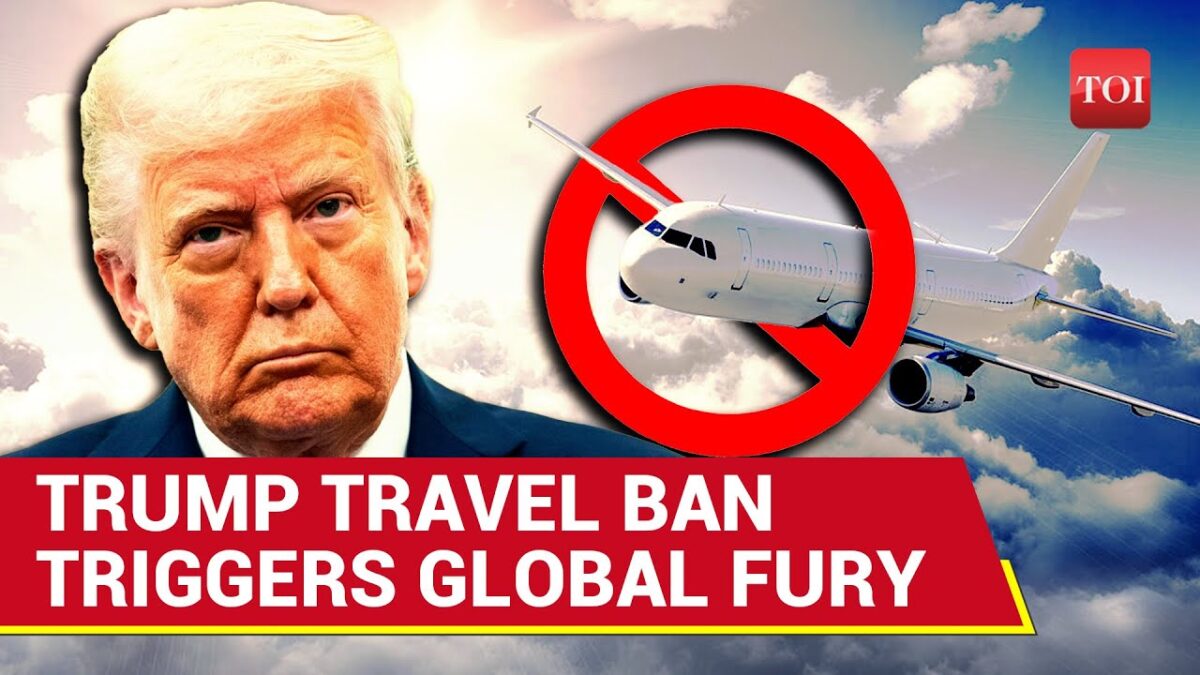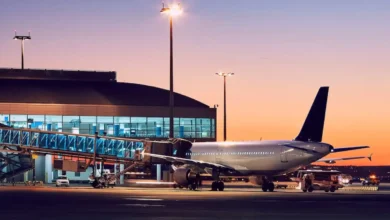Travel Ban: Understanding the Controversial Policy That Shapes Global Movement

Travel bans have been around for decades, but they’ve taken center stage in recent years due to pandemics, political tensions, and security concerns. The term “travel ban” might sound simple, but its implications are far-reaching. It can affect individuals, economies, international relations, and even global human rights.
In this article, we’re diving deep into everything there is to know about This. We’re talking about what they are, why they’re implemented, the controversies surrounding them, and how they impact people on a personal and global level. Whether you’re a frequent flyer, a policymaker, or just curious about the topic, you’ll find everything you need to know right here. Let’s break it down.
What Is a Travel Ban?
A travel ban is a government-imposed restriction that prevents individuals or groups from entering or leaving a country. These bans can be partial, affecting specific countries, regions, or even individuals, or they can be comprehensive, applying to entire populations. This are usually put in place for reasons like national security, public health, diplomatic disputes, or immigration control.
Think of it like a gate slamming shut—one day, you’re planning a vacation, and the next, you’re grounded due to circumstances beyond your control. Governments often argue that travel bans are necessary to protect their citizens, but critics see them as heavy-handed policies that often target marginalized groups or create unnecessary panic.
The History and Evolution of Travel Bans
Travel bans aren’t new. The concept can be traced back centuries to times of quarantine during outbreaks of plague and other infectious diseases. During the medieval era, port cities would often restrict travel from places experiencing disease outbreaks. These early versions of This were rudimentary but laid the groundwork for modern policies.
Fast forward to more recent history, and you can see how travel bans evolved. In the twentieth century, nations began using travel bans as tools for political leverage. Whether it was during the Cold War or in the aftermath of terrorist attacks, This became a staple of international relations. And then came the pandemic, which changed the game completely. Countries around the world closed their borders almost overnight, and the word “travel ban” entered everyday conversations.
Reasons Governments Implement Travel Bans
There are multiple reasons a government might decide to issue a travel ban. One common reason is public health. For example, during disease outbreaks like Ebola or COVID-19, This are used to prevent the spread of illness. While these bans are often seen as necessary, they can also be criticized for being poorly timed or unevenly enforced.
Another reason is national security. Governments sometimes restrict travel from certain countries if they believe that doing so will reduce the risk of terrorism or espionage. This kind of This is highly controversial, especially when it’s perceived as targeting specific religious or ethnic groups. Economic protectionism, too, can be a motivating factor—banning entry or exit can be a way to protect local industries or currency stability.
The Political Side of Travel Bans
There’s no denying that travel bans are often politically charged. Leaders use them to send messages, assert control, or galvanize support from certain voter bases. When a country issues a travel ban, it’s rarely just about safety; it can also be about optics. For instance, a leader might impose a travel ban during an election season to appear tough on national security.
Travel bans can also be a form of diplomatic punishment. If two countries conflict, one might ban travel from the other to signal disapproval. While this might be effective in some cases, it often escalates tensions and can backfire in the court of public opinion.
Public Reaction and Media Coverage
Public opinion on travel bans is usually divided. Some people see them as necessary tools for safety and order, while others view them as violations of freedom and human rights. The media plays a huge role in shaping these opinions. How a travel ban is portrayed whether as a sensible precaution or an authoritarian overreach—can influence how the public reacts.
Media outlets also tend to focus on the most dramatic aspects of This : families separated, travelers stranded, protests erupting at airports. While these stories are important, they can also create a sense of panic or urgency that doesn’t always match reality. It’s crucial to look beyond headlines and understand the broader context.
Legal Challenges and Controversies
This often end up in court. Civil rights groups, immigration lawyers, and advocacy organizations frequently challenge them on legal grounds. The main arguments usually revolve around discrimination, due process, and the overreach of executive power. Courts sometimes uphold these bans, but in other cases, they’re struck down as unconstitutional.
One of the most famous legal battles in recent history was around the “Muslim ban” in the United States. This travel ban was met with widespread protests and was challenged by the Supreme Court. Even though a version of the ban was ultimately upheld, the case highlighted how contentious and emotionally charged This can be.

How Travel Bans Affect Travelers
For travelers, a This can be more than just an inconvenience it can be a life-altering event. Imagine planning a trip to see family, attend a wedding, or start a new job, only to be told you can’t go. That kind of disruption can be emotionally and financially devastating.
Travel bans can also create confusion. Often, they’re announced with little notice and vague guidelines, leaving travelers scrambling for information. Airlines may cancel flights, embassies might not have answers, and people are left in limbo. For frequent travelers or expatriates, these bans can disrupt life plans and long-term goals.
Economic Impact of Travel Bans
The economic ripple effects of This are enormous. Tourism is one of the first sectors to suffer. Airlines, hotels, restaurants, and local attractions all take a hit when travel is restricted. This doesn’t just affect big corporations small businesses and workers in tourist hotspots often bear the brunt.
Trade and commerce also feel the impact. When people can’t move freely, business deals are delayed, international conferences are canceled, and cross-border collaborations suffer. For countries that rely heavily on migrant labor or foreign investment, This can stall growth and increase unemployment.
Psychological and Social Effects
Beyond economics and politics, travel bans can have deep psychological effects. The uncertainty, isolation, and fear associated with being unable to travel can lead to anxiety and depression. This is especially true for people with family abroad, those who live between countries, or individuals with urgent medical or legal needs.
Socially, This can foster xenophobia and division. When people are told that others from certain countries are dangerous or unwelcome, it can reinforce harmful stereotypes. This, in turn, can affect how communities interact, both online and in real life.
Travel Bans in the Digital Age
The rise of social media has transformed how This are implemented and received. Now, news of a travel ban can spread within minutes. Hashtags trend, influencers weigh in, and public pressure can build fast. In some cases, this has led to bans being reversed or modified.
Digital tools also offer ways to circumvent or at least soften the blow of This. Virtual meetings, online education, and remote work have made it possible to stay connected even when physical travel isn’t an option. However, these alternatives can’t replace the value of in-person interaction and experience.
Alternatives to Travel Bans
Some experts argue that instead of blanket This, governments should use targeted approaches like rigorous screening, mandatory quarantines, or vaccination requirements. These methods can be just as effective, if not more so, without the wide-reaching consequences of a total ban.
Others suggest improving international cooperation. Rather than acting unilaterally, countries could work together to set health and security standards. This kind of multilateralism could lead to smarter, fairer, and more effective solutions.
Frequently Asked Questions
What is a travel ban?
A travel ban is a restriction placed by a government to stop people from entering or leaving a country, usually due to health or security concerns.
Are travel bans legal?
They can be, but they’re often subject to legal challenges. Courts may uphold or overturn them depending on the context and justification.
Who decides on a travel ban?
Usually, the executive branch of a government makes the decision, often in consultation with health or security agencies.
Can I appeal a travel ban?
In some cases, yes. Legal avenues may be available depending on your country and the nature of the ban.
Do travel bans work?
The effectiveness is debated. They can delay the spread of disease or threats but also come with significant drawbacks.
How can I stay informed about travel bans?
Check official government websites, travel advisory pages, and trusted news sources.
Are there ways around travel bans?
Not usually, unless exemptions apply. Diplomats, citizens, or people with special permits may be allowed entry.
What should I do if I’m affected by a travel ban?
Contact your airline, check your government’s travel site, and consult legal or immigration experts.
Are travel bans discriminatory?
They can be. When targeted at specific countries or ethnic groups, critics argue they reinforce harmful stereotypes.
Will travel bans become more common?
Possibly. As global challenges like pandemics and climate change grow, countries may resort to them more frequently.
If you want more insight into how travel bans could affect your next trip or your industry, let me know and I’ll help you dig even deeper.







